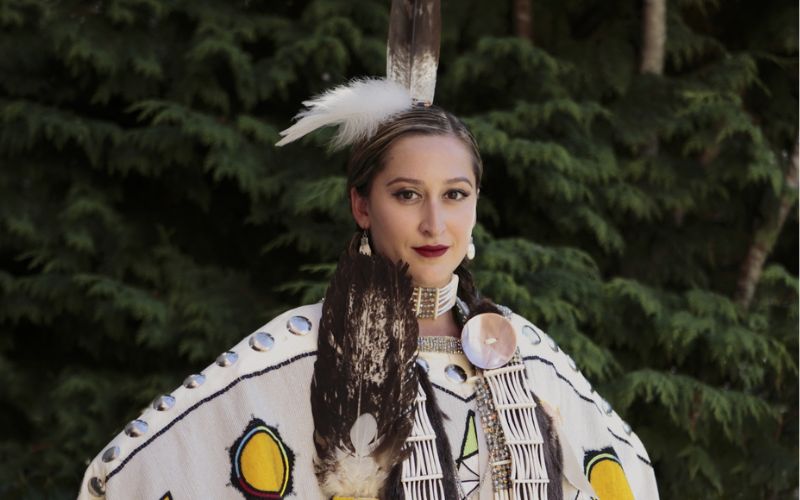
- Details
- By Native News Online Staff
Bree R Black Horse (Seminole Nation of Oklahoma) has joined the United States Attorney’s Office for the Eastern District of Washington as an Assistant United States Attorney dedicated to prosecuting cases involving Missing and Murdered Indigenous People (MMIP).
Black Horse will work out of the Yakima Office and will serve throughout the Northwest Region, including Washington, Oregon, Montana, Idaho and California.
Before joining the U.S. Attorney’s Office, Black Horse practiced law at the firm of Kilpatrick Townsend, advising Tribal governments and enterprises on all aspects of federal, state, and tribal law, including tribal sovereignty, economic development, treaty rights, and Indian Country litigation.
She previously served as a law clerk to Chief U.S. District Court Judge Brian M. Morris for the District of Montana and as a legal aid attorney and public defender for the Confederated Tribes and Bands of the Yakama Nation. AUSA Black Horse was the Program Director for the 2023 Law School Admission Council’s Pre-Law Undergraduate Scholars Program, which aims to make a law degree more accessible for diverse students from Central Washington. She is a 2013 graduate of Seattle University School of Law, where she was the Douglas R. Nash Native American Scholar as well as the co-founder and editor-in-chief of the American Indian Law Journal. She received her undergraduate degree in Political Science and Government from Seattle Pacific University in 2010.
The MMIP crisis is prevalent across the United States, with Indigenous peoples being murdered at a rate ten times the national average. Homicide is one of the leading causes of death for Native women ages 10-34, according to the Bureau of Indian Affairs.
Advocates say jurisdictional confusion, systemic limitations, and apathy leave many cases unsolved. Devastated families in Native communities are often left to look for their loved ones alone.
According to the Urban Indian Health Institute, Washington, California and Montana rank among the highest in the nation for MMIP cases.
“For far too long, Indigenous men, women, and children have suffered violence at rates higher than many other demographics,” Black Horse said in a statement. “As I step into this role, I look forward to working with our local, state, and tribal partners to identify concrete ways of reducing violence and improving public safety in Indian country and elsewhere. I also look forward to honing my skills as a federal prosecutor and working with others who are dedicated to DOJ’s mission to seek justice on behalf of victims and their families.”
Black Horses’ hiring is part of the Department of Justice’s regional MMIP outreach program, which dedications five MMIP Assistant U.S. Attorneys and five MMIP coordinators to provide specialized support to United States Attorneys’ offices to address and combat the issues of MMIP. This support includes assisting in investigating unresolved MMIP cases and related crimes and promoting communication, coordination, and collaboration among federal, Tribal, local, and state law enforcement and non-governmental partners on MMIP issues. The five regions include the Northwest, Southwest, Great Plains, Great Lakes, and Southeast Regions, and MMIP personnel will be located within host United States Attorneys’ offices in the Districts of Alaska, Arizona, Eastern Washington, Minnesota, New Mexico, Northern Oklahoma, Oregon, South Dakota, and Western Michigan. Programmatic support will be provided by the MMIP Regional Outreach Program Coordinator at the Executive Office for United States Attorneys.
More Stories Like This
Native News Weekly (August 25, 2024): D.C. BriefsUS Presidents in Their Own Words Concerning American Indians
Indigenous Actor Elaine Miles Reports Detention by Alleged ICE Agents
Happy Thanksgiving from Native News Online
Coming Up on Native Bidaské: Behind the Animation: Joey Clift Talks “Pow” and Native Storytelling
Help us tell the stories that could save Native languages and food traditions
At a critical moment for Indian Country, Native News Online is embarking on our most ambitious reporting project yet: "Cultivating Culture," a three-year investigation into two forces shaping Native community survival—food sovereignty and language revitalization.
The devastating impact of COVID-19 accelerated the loss of Native elders and with them, irreplaceable cultural knowledge. Yet across tribal communities, innovative leaders are fighting back, reclaiming traditional food systems and breathing new life into Native languages. These aren't just cultural preservation efforts—they're powerful pathways to community health, healing, and resilience.
Our dedicated reporting team will spend three years documenting these stories through on-the-ground reporting in 18 tribal communities, producing over 200 in-depth stories, 18 podcast episodes, and multimedia content that amplifies Indigenous voices. We'll show policymakers, funders, and allies how cultural restoration directly impacts physical and mental wellness while celebrating successful models of sovereignty and self-determination.
This isn't corporate media parachuting into Indian Country for a quick story. This is sustained, relationship-based journalism by Native reporters who understand these communities. It's "Warrior Journalism"—fearless reporting that serves the 5.5 million readers who depend on us for news that mainstream media often ignores.
We need your help right now. While we've secured partial funding, we're still $450,000 short of our three-year budget. Our immediate goal is $25,000 this month to keep this critical work moving forward—funding reporter salaries, travel to remote communities, photography, and the deep reporting these stories deserve.
Every dollar directly supports Indigenous journalists telling Indigenous stories. Whether it's $5 or $50, your contribution ensures these vital narratives of resilience, innovation, and hope don't disappear into silence.
 The stakes couldn't be higher. Native languages are being lost at an alarming rate. Food insecurity plagues many tribal communities. But solutions are emerging, and these stories need to be told.
The stakes couldn't be higher. Native languages are being lost at an alarming rate. Food insecurity plagues many tribal communities. But solutions are emerging, and these stories need to be told.
Support independent Native journalism. Fund the stories that matter.
Levi Rickert (Potawatomi), Editor & Publisher

